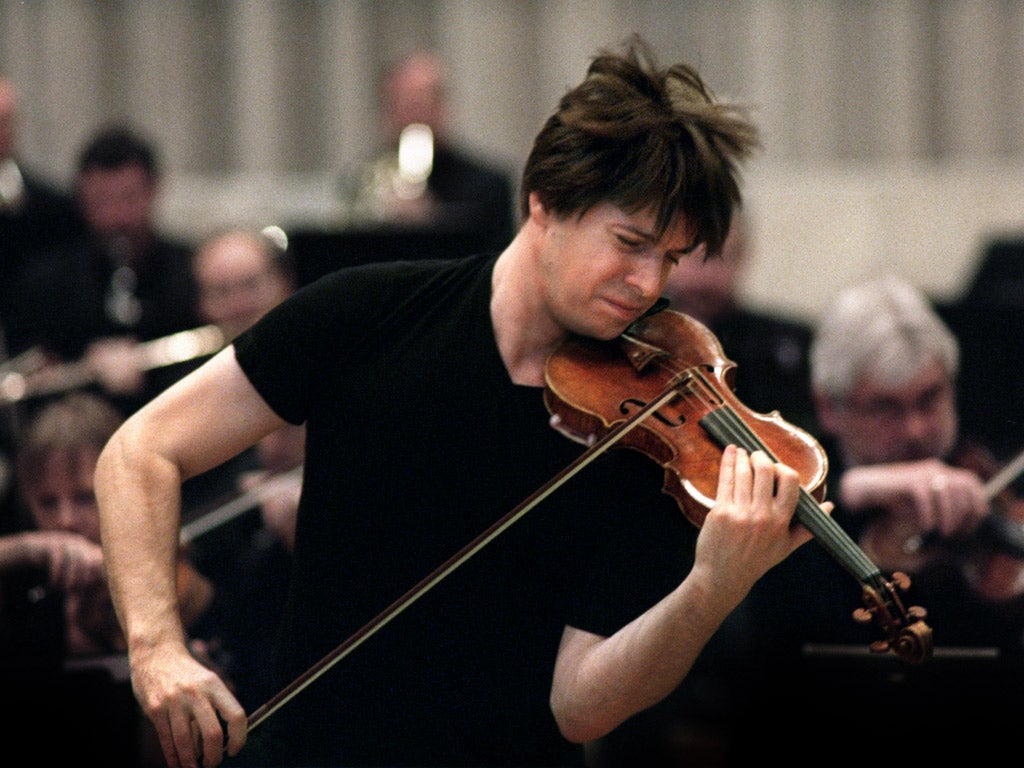Academy of St Martin in the Fields/Joshua Bell, Cadogan Hall, London Carole Cerasi, Foundling Museum, London
Former teen virtuoso Joshua Bell has an orchestra all of his own to play with, but are two hands really enough?

The first London concert of Joshua Bell's tenure as director of the Academy of St Martin in the Fields was a puzzle. The orchestra has been so good for so long that it is in danger of being taken for granted. Having kept its head through the period instruments revolution, its sound is as clear and true as it was 30 years ago, its phrasing a little sharper and crisper. In appointing a violinist known for his peerless technique and glossy tone as the successor to Sir Neville Marriner, ASMF is making a statement. But in a programme that celebrated both the pinnacle of ASMF's international fame under Marriner in the soundtrack to Milos Forman's film Amadeus and Bell's breakthrough as a teen virtuoso, it seemed he has more to learn from his orchestra than they do from him.
Listen to today's ASMF and it is apparent that each section of the orchestra not only knows its part but knows the parts of the other sections and how they interact. Seated in the leader's chair, Bell set a smart pace for Mozart's Little G Minor Symphony (K183), all razored strings and throaty horns, with a verdant trio in the choppy minuet. This and Beethoven's Fourth Symphony predate the job description of conductor and work perfectly well without one, though there has to be more sense of a unifying imagination than a generalised brightness of tone, flamboyant timpani and a fast fourth movement. When Bell lifted his bow from the string, circling vaguely in the direction of this or that woodwind motif, it might as well have been a washing-up brush. No harm was done, but neither was there any positive effect.
Box office aside, Bruch's Violin Concerto No 1 was a riskier proposition as the points when orchestral direction is most needed are those when the soloist is otherwise occupied. Romantic concertos are too heavily scored to be co-ordinated by eye contact. Far from liberated, Bell sounded as contained as ever. What was missing was a sense of insight, a new perspective on a work he has been playing since childhood. After decades of concentrating on producing the highest and sweetest notes, ASMF's new music director must get to know the cellos and the basses and work his way up from the bottom of the orchestra. There's more to music than melody, and more to leading than pointing a bow at the bassoons.
Carole Cerasi's London Handel Festival recital at the Foundling Museum traced a century of close correspondence and distant admiration in the keyboard music of Handel and his circle. Here was music of orchestral ambition and colour (Handel's B flat and D major Suites and Telemann's E flat Overture), music that sang with the chaste voice of a church organ (Buxtehude's Ciaccona in E minor), that stretched form, tonality and technique (Scarlatti's G major and G minor Sonatas), that paid homage to Handel (Rameau's Gavotte and Doubles in A minor) and inspired him (Zachow's Suite in B minor). In the most still and seductive material, Cerasi disarms the hair-trigger keys and high-maintenance quills of the harpsichord, playing as though she were touching the strings. Elsewhere, her playing is muscular and theatrical. Mozart, only three years old when Handel died, essayed the "baroque" in his gawky Little Gigue in G, a whoopee cushion of a work to close the concert, but a tribute nonetheless.
Classical choice
Andris Nelsons conducts Sarah Connolly, Toby Spence, James Rutherford and the CBSO and chorus in Elgar's The Dream of Gerontius, at Birmingham's Symphony Hall (Thu). David Bates and La Nuova Musica present the 1712 version of Handel's intimate Arcadian romance, Il pastor fido, at London's St George's, Hanover Square (Fri).
Subscribe to Independent Premium to bookmark this article
Want to bookmark your favourite articles and stories to read or reference later? Start your Independent Premium subscription today.

Join our commenting forum
Join thought-provoking conversations, follow other Independent readers and see their replies